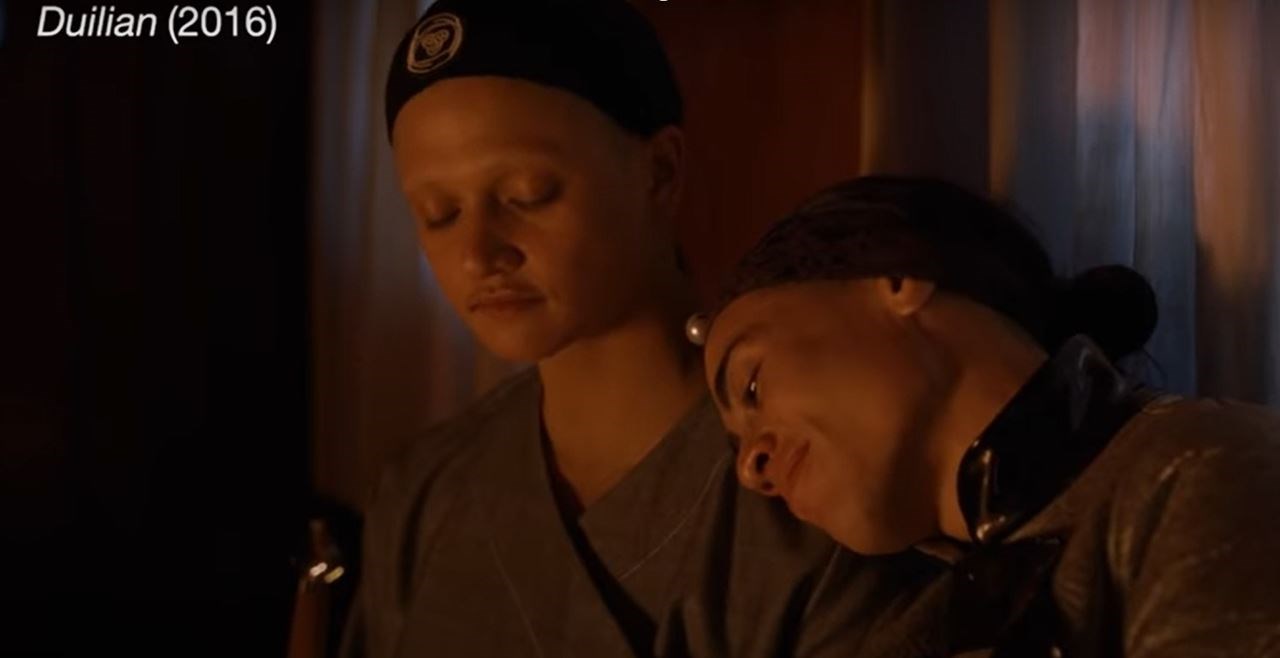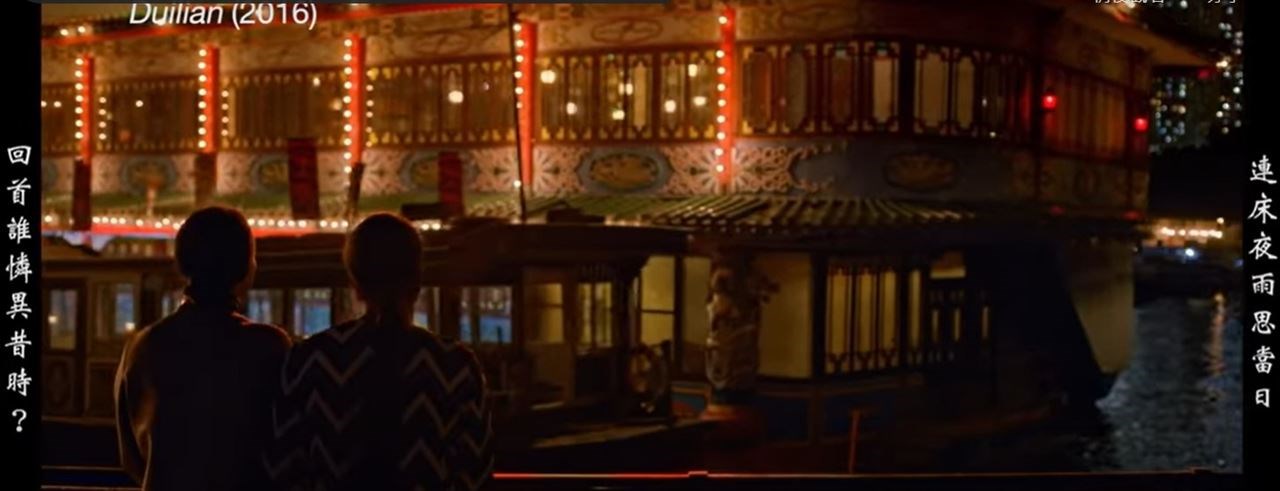Wu Tsang refuses to be labeled as “trans artist” or “trans activist” because these labels are oftentimes oversimplified. As an artist, her works are concerned with race, gender, and social justice, as these topics often intersect in reality. For example, one of her video installations was about trans refugees, filmed on the island of Lesbos in Greece.
In the movie Duilian, Wu Tsang recreated the life story of a 19th-century Chinese poet and martyr Qiu Jin. Qiu was among the first women who started to learn about and advocate for women's rights in China. She established a women's college and journal to promote education for women. Her female friend, Wu Zhiying, supported her efforts. Though it was an open secret that Wu and Qiu were in an intimate love relationship, history texts in China never acknowledge this fact because of the stigma toward LGBT people that perpetuates in the culture. In this film, Tsang centers Qiu’s life on the relationship with her lover Wu. While Tsang plays Qiu and her collaborator boychild plays Wu, they interacted and conversed in Qiu and Wu’s poems in English in settings of a traditional Chinese room and modern Hong Kong. By doing so, Tsang reenacts the silenced love story between Qiu and Wu.
 Duilian 2016 scene 1by Wu Tsang, via 2018 MacArthur Fellow video
Duilian 2016 scene 1by Wu Tsang, via 2018 MacArthur Fellow video
Tsang is urged to make people visible in her documentary-style films, but more than just being seen - she uses her film to explore complications in identity, representation, and the power of image and film-making.
 Duilian 2016 scene 2by Wu Tsang, via 2018 MacArthur Fellow video
Duilian 2016 scene 2by Wu Tsang, via 2018 MacArthur Fellow video
Page created on 6/14/2021 6:45:36 PM
Last edited 6/17/2021 7:48:15 PM
